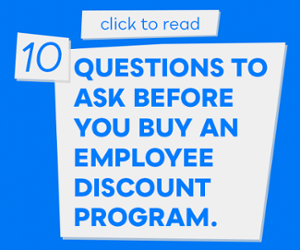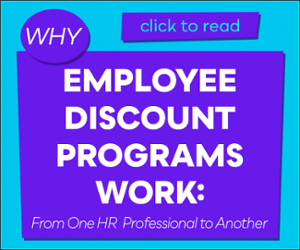Can any employee in your organization become the CEO?
Sounds ridiculous, but we can make a case for it.
But how about this idea: What if each employee was given the same authority and power the CEO has, just in their own world of responsibilities?
CEOs have ownership. They have the ultimate authority. They can set a tone and attitude quicker than anyone else. After all, they're at the top of the food chain.
But what if each employee could be the chief executive of their role?
What if we hired great people, helped them become exceptional at what they do, then empowered them with the freedom to fulfill their roles to the best of their abilities?
It's lofty but worthy. After all, empowerment is a big key to creating long-term engaged employees.
70% of employees ranked being empowered to take action at work when a problem or opportunity arose as an important element of their engagement (SHRM)
The Benefits of Empowerment
The great thing about empowerment is it results in long-term engagement. But it also comes with other benefits, including financial:
- Employees who own their roles take personal pride in what they do, and what the company does. They require less oversight, and put forth a consistent, regular effort.
- They require less compensation. As Seth Godin would say, they become artists. Their work is priceless, and they take a great deal of pride in it.
- They solve problems because they know how. There really isn't much more to add to this, other than: who wouldn't want their employees solving problems?
- They push the company forward to new and different horizons. Because they have authority on their jobs, they'll find new and creative ways to serve.
- Best of all, empowered employees pay off for customers. Imagine being a customer and getting a refund without a manager having to authorize it.
More than 80% of Millennials say they're willing to put in a great deal of effort beyond that normally expected in order to help their organization be successful (Boston College)
How do you empower employees?
It's not as easy as it sounds, we know. You can't just turn someone loose with the full authority of your brand and expect everything to go smoothly. You wouldn't hand the car keys over to your 12 year old.
Empowering employees boils down to this:
Present employees with goals - overall company goals, goals for their unit, and individual goals.
Remove all distractions from their ability to meet those goals (this means fair compensation, good workspace, access to necessary tools, competent colleagues, etc.).
Give them access to tools that will help them grow in competency and the ability to meet their goals.
And watch them go.
One important caveat to empowerment: you must allow room for failure.
Not every decision will be the right one. Not every unique riff will pay off.
If you've hired the right people, the ones who fit your culture, their failed attempts aren't going to sink the company. Let them take calculated risks, and give them the chance to learn from their failures. This is how you build trust, a key component to empowerment.
A harsh approach to failure leads to bare minimum efforts, and a workforce that will do just enough to keep managers from noticing them.
72% of the U.S. workforce feels a sense of personal accomplishment at work (Modern Survey)
Manager, Know Thy Role
The manager, as always, plays a central role in whether or not an employee is empowered and engaged. They're the ones most likely to give an employee authority, and the ones most likely to take it away.
Don't micromanage. Don't impose your working style on them, or encourage them to do what everyone else is doing.
Let them be themselves. After all, the manager hired them because they're a great fit for your culture. And you're giving them the tools to be competent.
You've hired them to fit the culture, you've given them the tools to be competent. They know what they're doing.
This doesn't mean to stay away, or to stop checking in. No, regular touchpoints and guidance are still needed.
It just means that when faced with a problem to solve, employees might actually do something other than wait for the boss. They'll actually come up with the solution themselves.
Doesn't that sound great? Isn't that what you hire people to do?
Employees who say they have more supportive supervisors are 1.3 times as likely to stay with the organization and are 67% more engaged (The Energy Project)
The most important part of empowerment is…
Setting a clear goal and vision.
If an employee knows where things need to go, they can make every decision based on whether it'll get them any closer to that goal.
They can make up their own path to the goal. That path might be different from what their manager might have chosen - for better or worse. But they won't be constantly looking over their shoulders, waiting to be told where to go, what to do, and what to say.
That frees everyone up to do their best work. It enables each person to be the chief executive of their role.
70% of employees say their employer should understand them to the same degree they are expected to understand customers (Towers Watson)





